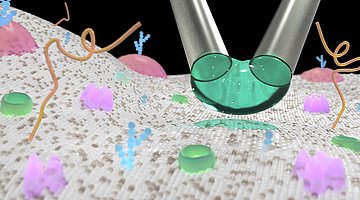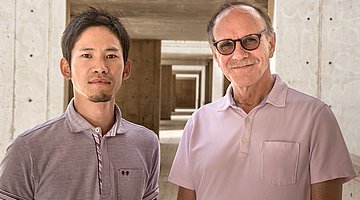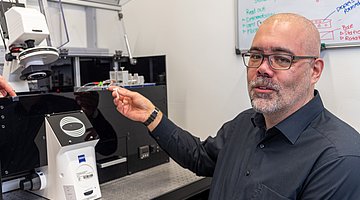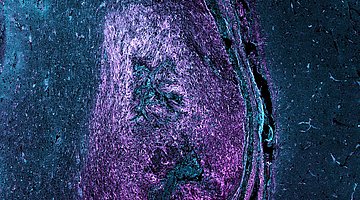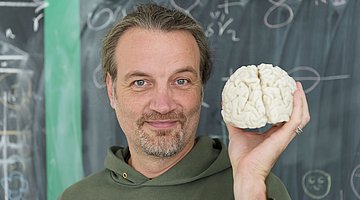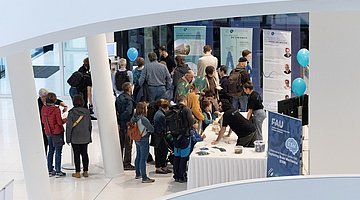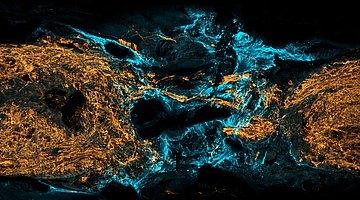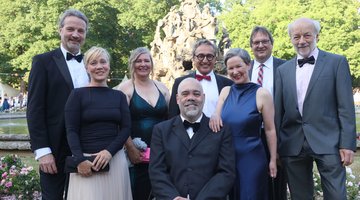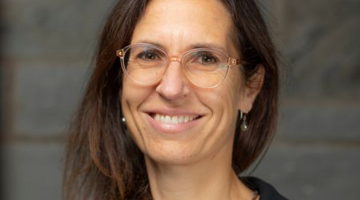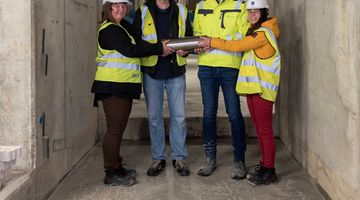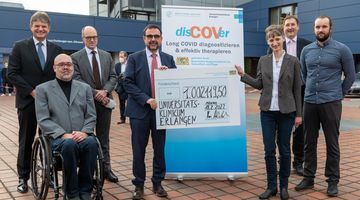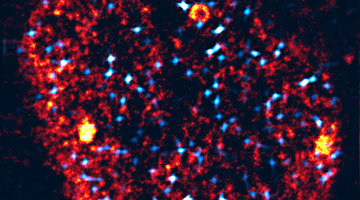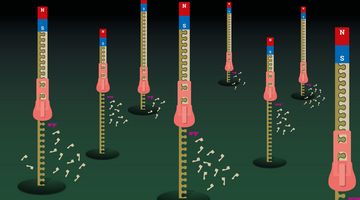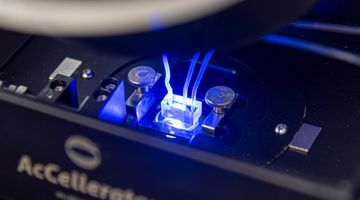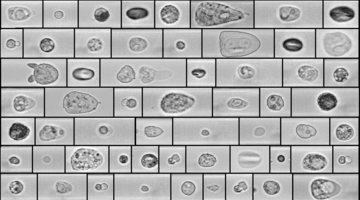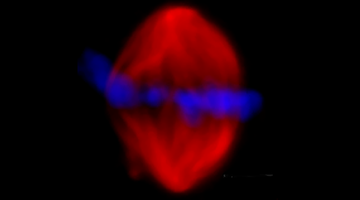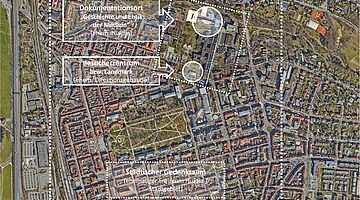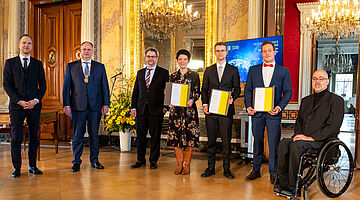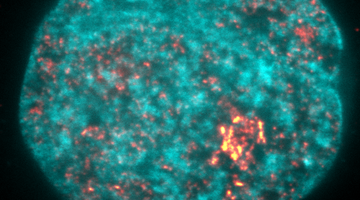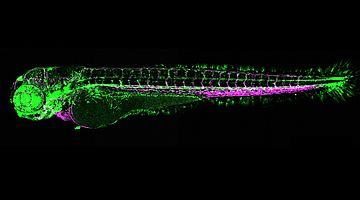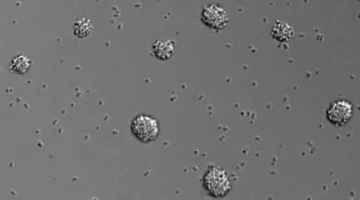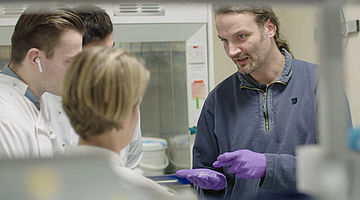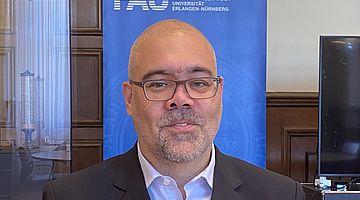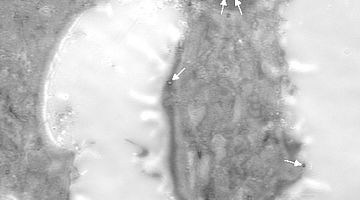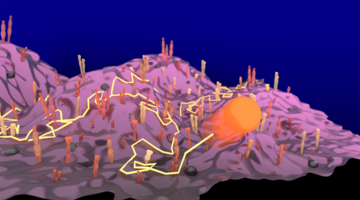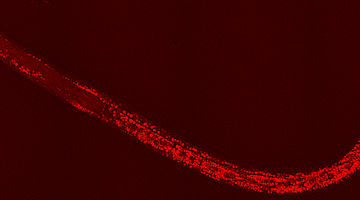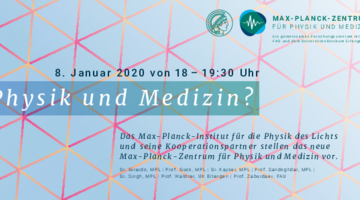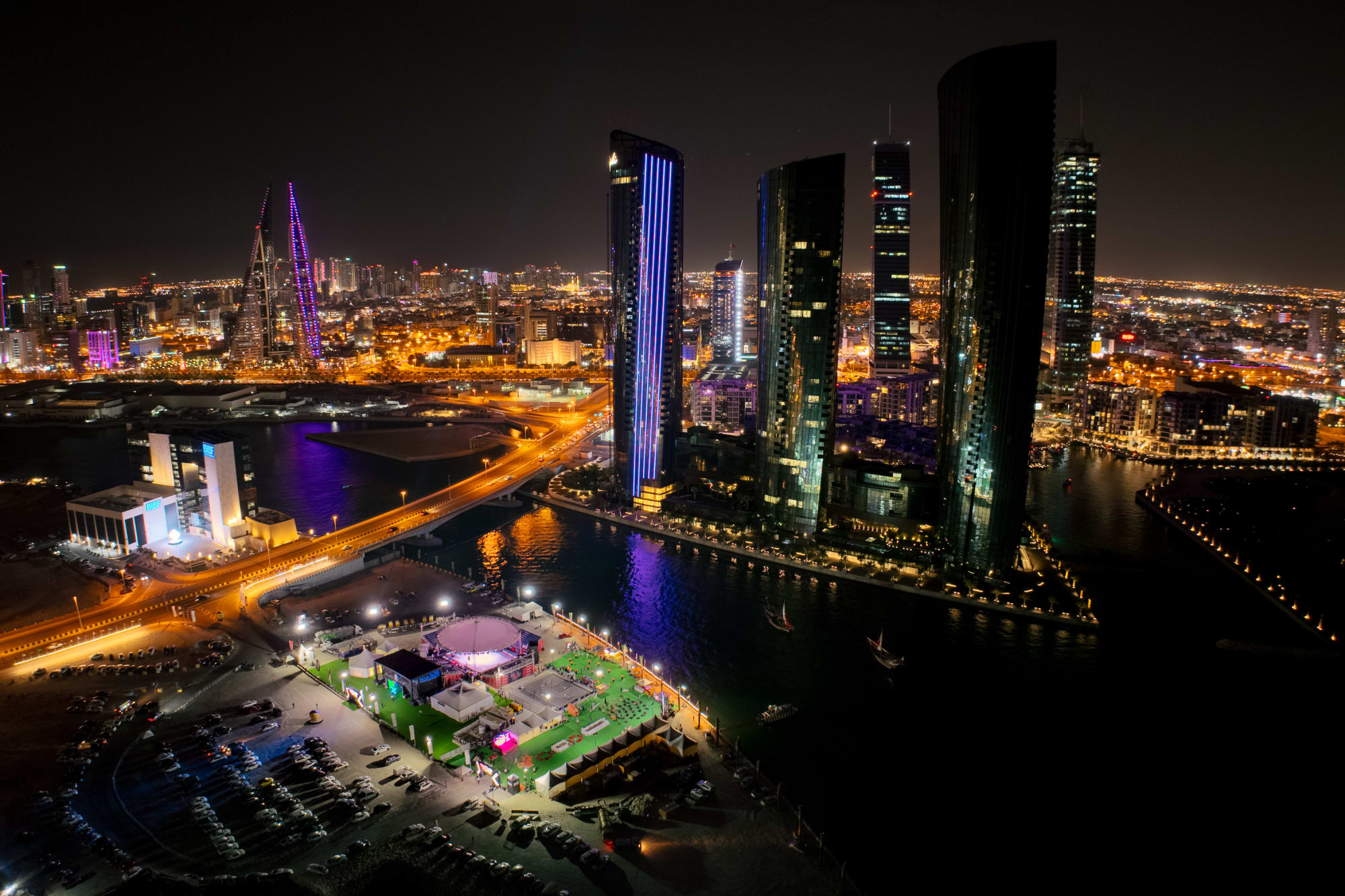News & Events
Experimenting, tinkering, researching: On April 3, 2025, the Max Planck Institute for the Science of Light (MPL) and the Max-Planck-Zentrum für Physik und Medizin (MPZPM) will open their doors for Girls' Day. Schoolgirls from the 5th grade onwards are invited to discover the fascinating world of the…
Proteins are vital components of all living systems. They not only provide building blocks for structures and tissues, but perform essential functions, for example in metabolism, immune defense and internal communication. So-called PIEZO proteins play a decisive role in, among other things, the…
Today, the MPZPM hosted its first research highlight with the EBM Update Meeting 2025. Scientists from various disciplines discussed the latest research in the field of brain mechanics and engaged in a lively scientific exchange to foster a deeper understanding.
Three of the world's leading scientists in the field of cancer physics are to receive the 2024 Greve Prize from the German National Academy of Sciences Leopoldina for their outstanding research in the fields of natural sciences, medicine and engineering. Among them is Prof. Dr. Jochen Guck, Director…
When we think about bacteria, we may imagine single cells swimming in solution. However, similarly to humans, bacterial cells often socialize, using surfaces to coalesce into complex heterogeneous communities called biofilms. Within a group, bacteria in the biofilm are extremely robust in resisting…
The Max Planck Society (MPS) has awarded the Hermann Neuhaus Prize to Markéta Icha Kubánková, a postdoctoral researcher at the Max Planck Institute for the Science of Light (MPL) and the Max-Planck-Institut für Physik und Medizin (MPZPM). The prize, worth 25,000 euros, recognizes excellent postdocs…
Zebrafish are capable of regenerating their spinal cord. The German Research Foundation (Deutsche Forschungsgemeinschaft) is now providing 250,000€ to the MPL Research Group led by Daniel Wehner to further study this remarkable ability. Wehner and his team will use the funds to continue their…
As part of the largest science festival in the region, MPL also opened its doors to the general public. More than 1,000 interested people visited the institute during the Long Night of Science to learn more about the research at MPL in a diverse program with lab tours, demonstrations and talks.
All life begins with one cell. During the development of an organism, cells divide and become specialized, yet each cell nucleus contains the same…
On August 1, Kristian Franze will become one of the directors of the Max-Planck-Zentrum für Physik und Medizin (MPZPM) - at the same time he will become director of the Institute for Medical Physics and Microtissue Engineering at the Friedrich-Alexander-Universität Erlangen-Nürnberg (FAU). The MPZPM…
Jochen Guck, Director of the Division Biological Optomechanics, was appointed professor at the Friedrich-Alexander-Universität Erlangen-Nürnberg (FAU). He will be Professor of Biological Optomechanics.
Jochen Guck is also founding director of the Max-Planck-Zentrum für Physik und Medizin, which is…
By combining imaging of deformed cells and artificial intelligence, researchers at the Max Planck Institute for the Science of Light and the Max-Planck-Zentrum für Physik und Medizin in Erlangen have succeeded in developing a high-speed method for identifying and sorting cells that does not require…
Recently, a film team of the Bayerischer Rundfunk (Bavarian broadcasting organisation) visited the Max Planck Institute for the Science of Light: The programme about the coronascope, which is currently located in the virus laboratory of the University Hospital Erlangen and takes pictures of cells…
The human body is composed of billions of cells, each one representing the smallest self-sustaining unit of life. We know that surfaces of our cells are carpeted with a layer of densely crowded molecules which rush about in a perpetual frenzy. In the blink of an eye, these molecules undergo…
Organisms often react to extreme environmental conditions with defence mechanisms which allow them to survive. Understanding these mechanisms may lead to new approaches for extending the life of human cells. In a work recently published in the journal Aging Cell, a team of researchers from FAU, the…
As of February 2020 Katja Zieske joined the Max Planck Institute for the Science of Light to set up her laboratory. Starting in May she will head a new Max Planck research group addressing how biological systems are assembled from modular building blocks across multiple lengths scales.
The research…
























